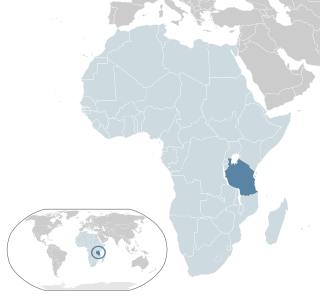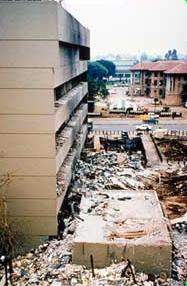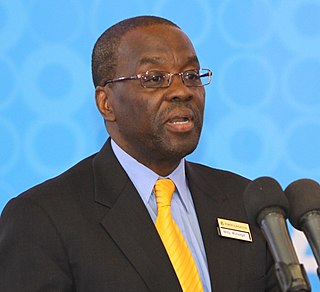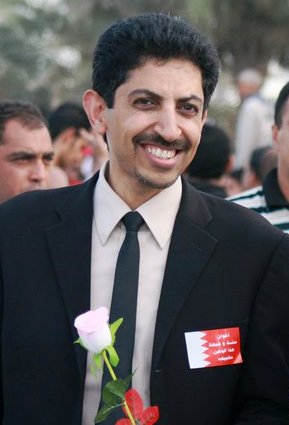
Dar es Salaam is the largest city and financial hub of Tanzania. It is also the capital of the Dar es Salaam Region. With a population of over five million people, Dar es Salaam is the largest city in East Africa and the sixth-largest in Africa. Located on the Swahili coast, Dar es Salaam is an important economic center and one of the fastest-growing cities in the world.

Tanzania, officially the United Republic of Tanzania, is a country in East Africa within the African Great Lakes region. It is bordered by Uganda to the northwest; Kenya to the northeast; the Indian Ocean to the east; Mozambique and Malawi to the south; Zambia to the southwest; and Rwanda, Burundi, and the Democratic Republic of the Congo to the west. Mount Kilimanjaro, Africa's highest mountain, is in northeastern Tanzania. According to the 2022 national census, Tanzania has a population of nearly 62 million, making it the most populous country located entirely south of the equator.

Temeke District, officially the Temeke Municipal Council is one of five districts of the Dar es Salaam Region of Tanzania. Temeke is bordered to the south by the Mkuranga District of the Pwani Region, to the north by the Indian Ocean, and to the northwest by the Ilala District. Temeke's eastern boundary is shared by Kigamboni District. The district covers an area of 150.4 km2 (58.1 sq mi). The district is comparable in size to the land area of Cook Islands. The administrative seat is Miburani. The district is home to the University of Dar es Salaam's School of Education, the National Stadium, the largest stadium in the country, Port of Dar es Salaam the largest port in the country, and The Chamazi Stadium the largest privately owned stadium. The 2012 National Tanzania Census states the population of the district as 1,205,949.
The Dar es Salaam International Trade Fair (DITF) also known as Saba Saba Day takes place annually on the seventh of July at the Mwalimu J.K.Nyerere Trade Fair Grounds. It is located along Kilwa Road, 8 km south east of Dar es Salaam in Tanzania.

The Dar es Salaam Stock Exchange (DSE) is a stock exchange located on Ohio Street, west of Kivukoni, south east of Dar es Salaam, the commercial capital and largest city in Tanzania. It was incorporated in September 1996 and trading started in April 1998. It is a member of the African Stock Exchanges Association and the World Federation of Exchanges. The exchange is open five days a week, from Monday through Friday. The trading days are weekly from Monday to Friday, starting from 10.00 am to 14.00 pm.

Lesbian, gay, bisexual, and transgender (LGBT) people in Tanzania face severe challenges not experienced by non-LGBT residents. Homosexuality in Tanzania is a socially taboo topic, and same-sex sexual acts are criminal offences, punishable with life imprisonment. The law also criminalises heterosexuals who engage in oral sex and anal intercourse.

The 1998 United States embassy bombings were attacks that occurred on August 7, 1998. More than 220 people were killed in nearly simultaneous truck bomb explosions in two Capital East African cities, one at the United States Embassy in Dar es Salaam, Tanzania and the other at the United States Embassy in Nairobi, Kenya.

The government of Belarus is criticized for its human rights violations and persecution of non-governmental organisations, independent journalists, national minorities, and opposition politicians. In a testimony to the United States Senate Committee on Foreign Relations, former United States Secretary of State Condoleezza Rice labeled Belarus as one of the world's six "outposts of tyranny". In response, the Belarusian government called the assessment "quite far from reality". During 2020 Belarusian presidential election and protests, the number of political prisoners recognized by Viasna Human Rights Centre rose dramatically to 1062 as of 16 February 2022. Several people died after the use of unlawful and abusive force by law enforcement officials during 2020 protests. According to Amnesty International, the authorities didn't investigate violations during protests but instead harassed those who challenged their version of events. In July 2021, the authorities launched a campaign against the remaining non-governmental organizations, liquidating at least 270 of them by October, including all previously registered human rights organizations in the country.
Prostitution in Tanzania is illegal but widespread. UNAIDS estimate there to be 155,450 prostitutes in the country. Many women and young girls are forced into prostitution due to poverty, lack of job opportunities, culture, and the disintegration of the family unit. Many university students have to turn to prostitution for economic reasons.

United Nations Security Council resolution 1189 was adopted unanimously on 13 August 1998. In the resolution, after expressing its deep disturbance at the bombings in Nairobi, Kenya, and Dar es Salaam, Tanzania, on 7 August 1998, the Council strongly condemned the terrorist attacks and called on countries to adopt measures to prevent further incidents.

Willy Munyoki Mutunga, EGH is a Kenyan lawyer, intellectual, reform activist, and was the Commonwealth Special Envoy to the Maldives. He is also an active member of the Justice Leadership Group. He is the retired Chief Justice of Kenya and President of the Supreme Court of Kenya.
The issue of human rights in Tanzania, a nation with a 2012 population of 44,928,923, is complex. In its 2013 Freedom in the World report, Freedom House declared the country "Partly Free".

The Bahrain Thirteen are thirteen Bahraini opposition leaders, rights activists, bloggers and Shia clerics arrested between 17 March and 9 April 2011 in connection with their role in the national uprising. In June 2011, they were tried by a special military court, the National Safety Court, and convicted of "setting up terror groups to topple the royal regime and change the constitution"; they received sentences ranging from two years to life in prison. A military appeal court upheld the sentences in September. The trial was "one of the most prominent" before the National Safety Court. A retrial in a civilian court was held in April 2012 but the accused were not released from prison. The sentences were upheld again on 4 September 2012. On 7 January 2013, the defendants lost their last chance of appeal when the Court of Cassation, Bahrain's top court upheld the sentences.
Aboud Rogo Mohammed was a Kenyan Muslim cleric. He was alleged to have been an Islamist extremist and was accused of arranging funding for the al-Shabaab militia in Somalia. He was shot dead in Kenya, and his death triggered protests and violence by hundreds of protestors. Rogo is the fifth alleged Islamic radical killed in Kenya in 2012. David Ochami, a Kenyan journalist, stated that Rogo had the oratory prowess of Hezbollah leader Hassan Nasrallah and the logic of Egyptian ideologue Yusuf al Qaradawi.
Timothy Njoya is a theologian, human rights activist and a retired Presbyterian Church of East Africa Minister. Njoya holds Master's and Doctor of Philosophy (PhD) degrees from Princeton University. He was ordained as a minister on 20 March 1967 and has served in different parishes including Chuka, Tumutumu, Mathari, St. Andrews, Dagoretti and Kinoo before his retirement in 2011. In 2017 he published his memoirs titled We the People: Thinking Heavenly, Acting Kenyanly.

Jordi Cuixart i Navarro is a Spanish businessman and cultural activist from Catalonia. He was the president of Òmnium Cultural, a non-profit cultural organisation founded in 1961 with more than 190,000 members and 52 local branches in Catalonia, from December 2015 to February 2022.
General elections were held in Tanzania on 28 October 2020 to elect the President and members of National Assembly. The presidential election was won by incumbent John Magufuli of the Chama Cha Mapinduzi party.

Wanjeri Nderu is a human rights activist from Kenya.

Apart from protests on 1 October—the Chinese National Day—most of the significant events of the 2019–2020 Hong Kong protests in October 2020 took place away from the streets, and many of them outside Hong Kong and China. The threat to protests posed by the national security law was exacerbated by continued uncertainty about the fate of twelve detainees who had attempted to escape to Taiwan by boat in August, and were held across the border in Shenzhen; on 10 October, Hong Kong police detained nine further individuals in relation to that incident. In addition, the Hong Kong government did not relax the four-person gathering limit that had been enacted in the course of the third wave of the COVID-19 pandemic, and the police continued to strictly enforce it. Pan-democrats in the city considered the restrictive gathering limit to be a pretext for curbing protests, also given that other pandemic related restrictions were relaxed in the course of the month.
The Church of Jesus Christ of Latter-day Saints in Tanzania refers to the Church of Jesus Christ of Latter-day Saints and its members in Tanzania. The first branch was organized in 1992. In 2021, there were 2,999 members in 23 congregations.













